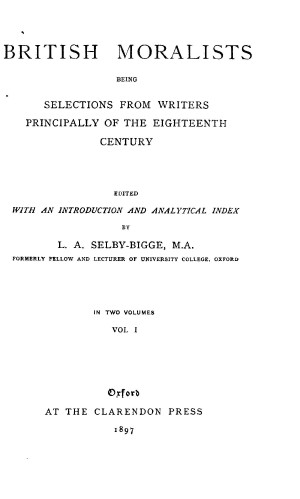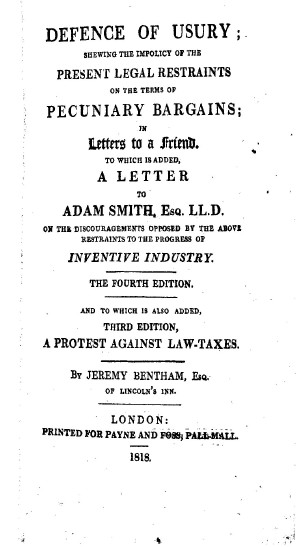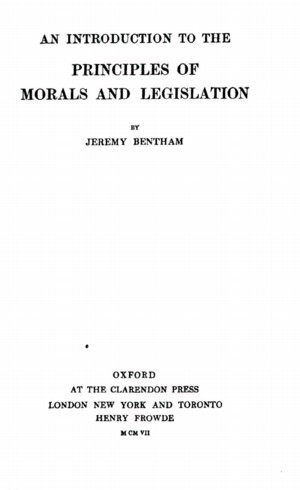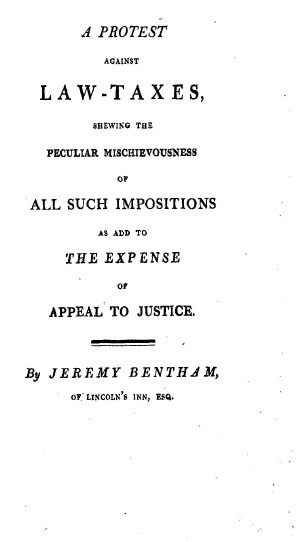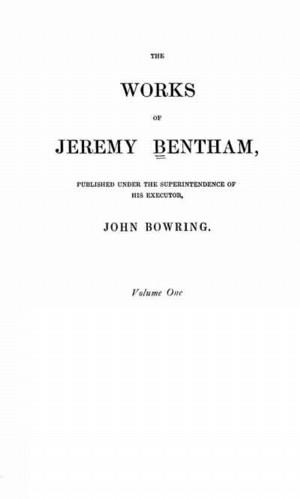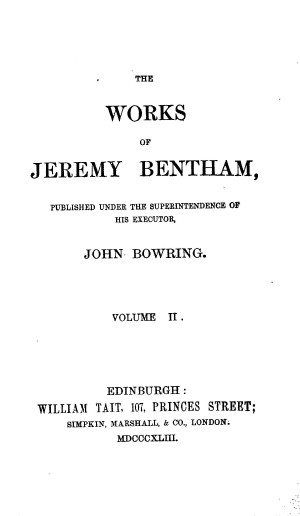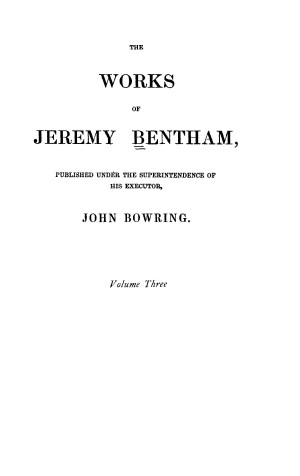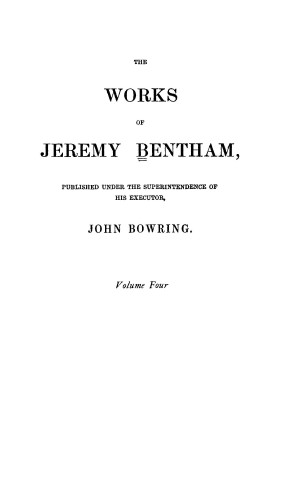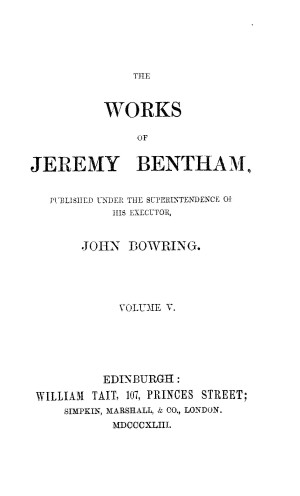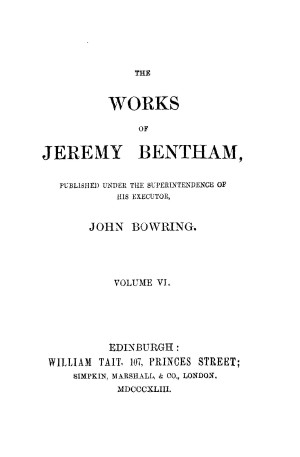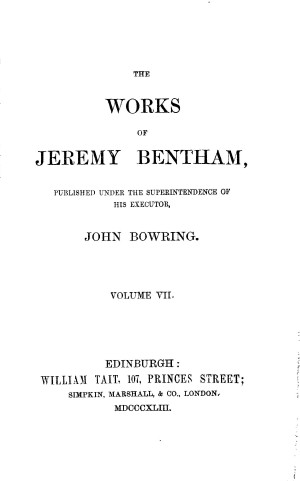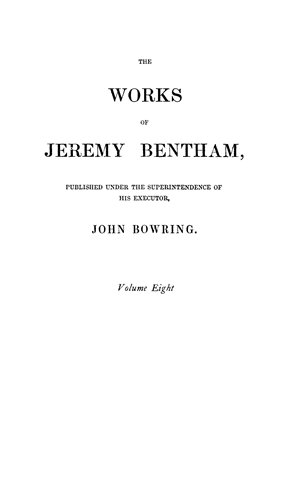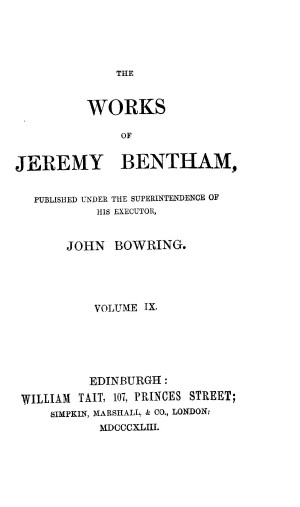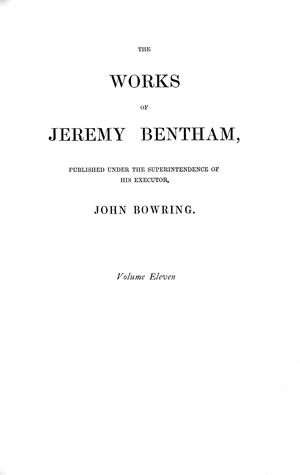Titles by Jeremy Bentham
1748 – 1832
Jeremy Bentham (1748-1832) trained as a lawyer and founded the early 19th century school of political thought known as “Benthamism” later called utilitarianism - based on the idea that governments should act so as to promote “the greatest good of the greatest number” of people.
Bio
He spent much of his life attempting to drawn up an ideal Constitutional Code, but he was also active in parliamentary reform, education, and prison reform. He influenced the thinking of James Mill and his son John Stuart Mill. [The image comes from “The Warren J. Samuels Portrait Collection at Duke University.”]
Bentham featured as the February 2021 OLL Birthday. Read it here
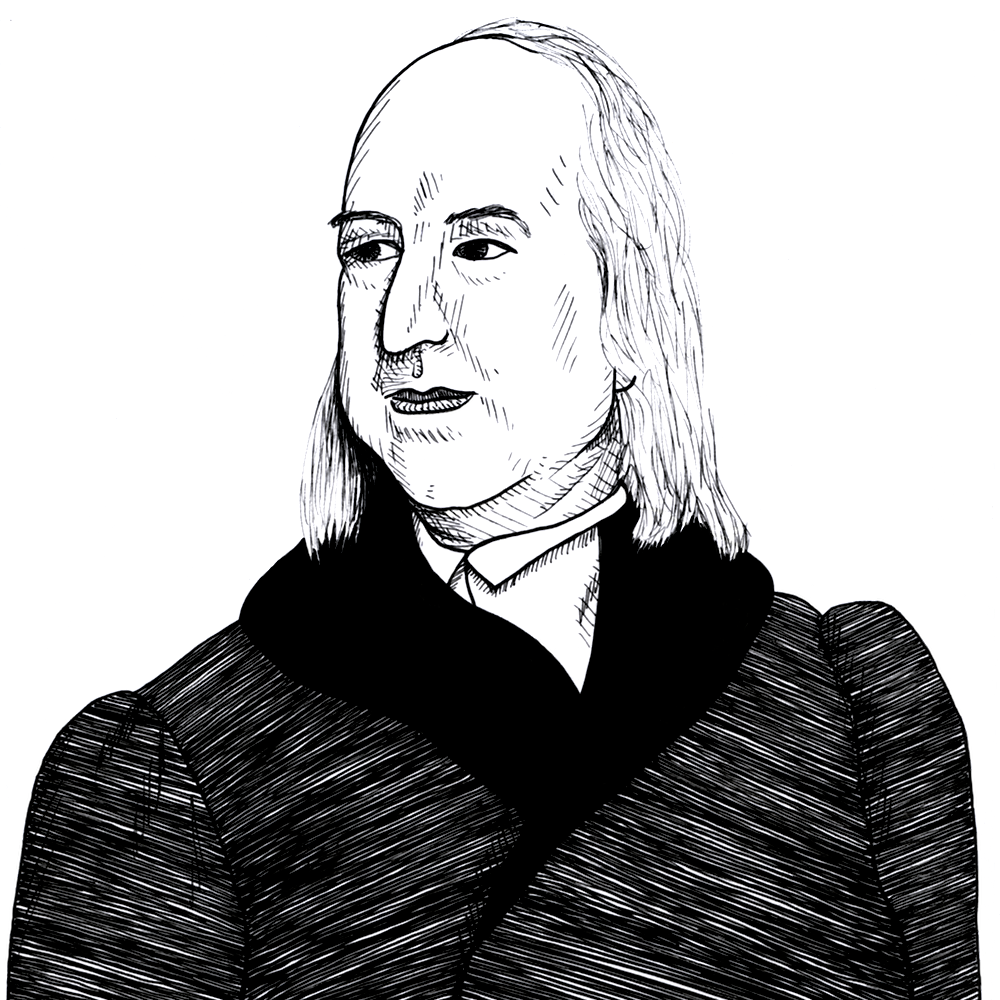
Titles
Related Collections



